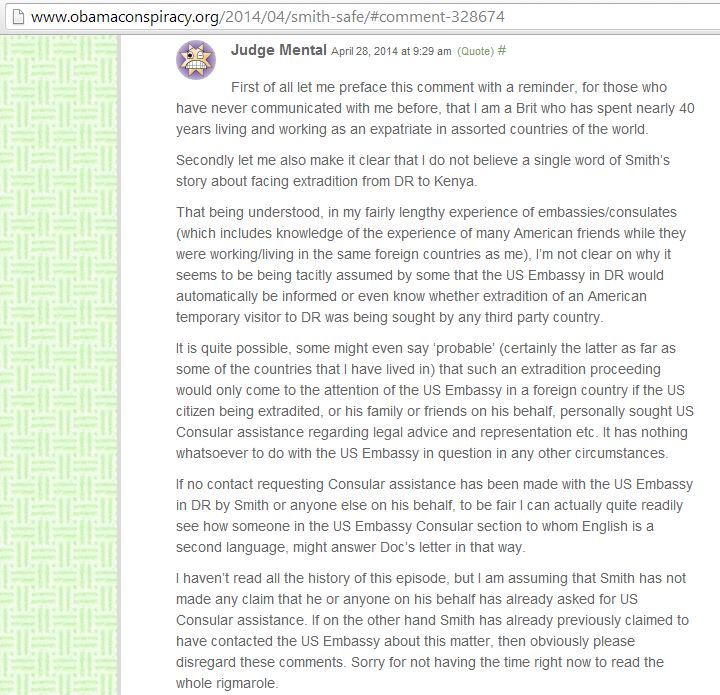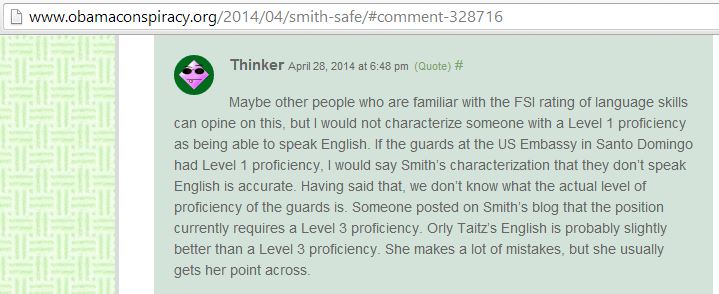Lima syndrome was named after an abduction at the Japanese Embassy in Lima, Peru in 1996, in which abductors developed sympathy for their hostages.
Members of a militant movement (Túpac Amaru Revolutionary Movement) took hostage hundreds of people attending a party at the official residence of Japan’s ambassador, Morihisa Aoki. Within a few hours, the abductors had set free most of the hostages, including the most valuable ones, owing to having sympathy towards them.
There’s many reasons why Lima syndrome can develop in abductors. Sometimes when there are multiple abductors, one or more of them will start to disagree with what they are doing and influence one another, or they just begin to feel bad and don’t have the heart to continue hurting their innocent captives.
However, Lima syndrome does not necessarily require a hostage scenario. Lima syndrome can arise when individuals unite, for example, on a website with maleficent intentions of acting and conspiring together to prove, disprove or promote a specific theory or a group of theories.
Often times some sort of evidence begins to surface which roundly discredits the group’s position on the said theory or theories. At that point some of the more radical (or the extremists) of the group begin to dismiss objective evidence and sometimes dismiss individuals of the group who are open to objective evidence.
At the same time the more enlightened of the group, or those with at least partially functioning moral compasses, will start to disagree with the group and soon reject the discredited theory:
http://www.obamaconspiracy.org/2014/04/smith-safe/#comment-328674
UPDATE: Bruce recently advised that there is another possible example of the ‘Lima Syndrome’ over at Dr. Conspiracy’s website:
http://www.obamaconspiracy.org/2014/04/smith-safe/#comment-328716











You do know the author of the comment basically called you a liar?
So the best you have to support your claim that Kenya is seeking your extradition is relying on someone who says they don’t believe you, but there are instances that a consulate may not know?
That’s pretty darn weak….
So, your “evidence” amounts to the opinion of someone who thinks you to be a ball face liar? This is planet Earth, Smith. Things don’t work like that here.
I hope the following article may be helpful, at least to some of our readers, to the current discussion:
———————————————
Embassy and Consulate – An Overview
Embassies and Consulates Are the Diplomatic Offices of a Country
About.com / Geography
By Amanda Briney, Contributing Writer
Updated April 15, 2014
Due to the high level of interaction between countries in our interconnected world of today, diplomatic offices are needed in each country to aid in and allow such interactions to occur. The result of these diplomatic relationships are the embassies and consulates found in cities worldwide.
Embassy vs. Consulate
Often, while the terms embassy and consulate are used together, however, the two are very different. An embassy is the larger and more important of the two and is described as a permanent diplomatic mission which is generally located in a country’s capital city. For example the United States Embassy in Canada is located in Ottawa, Ontario. Capital cities like Ottawa, Washington D.C., and London are home to nearly 200 embassies each.
The embassy is responsible for representing the home country abroad and handling major diplomatic issues, such as preserving the rights of citizens abroad. The ambassador is the highest official in the embassy and acting as the chief diplomat and spokesperson for the home government. Ambassadors are typically appointed by the highest level of the home government. In the United States, ambassadors are appointed by the President and confirmed by the Senate.
The member countries of the Commonwealth of Nations do not exchange ambassadors but instead utilize the office of High Commissioner between member countries.
Usually, if a country recognizes another as being sovereign, an embassy is established to maintain foreign relations and provide assistance to traveling citizens.
By contrast, a consulate is a smaller version of an embassy and is generally located in the larger tourist cities of a country but not the capital. In Germany for instance, the U.S. consulates are in cities like Frankfurt, Hamburg, and Munich, but not in the capital city of Berlin (because the embassy is located in Berlin).
Consulates (and their chief diplomat, the consul) handle minor diplomatic issues like issuing visas, aiding in trade relationships, and taking care of migrants, tourists, and expatriates.
In addition, the U.S. has Virtual Presence Posts (VPPs) to assist people around the world in learning about the US and the areas in which the VPP is focused. These were created so that the US could have a presence in important areas without physically being there and the areas with the VPPs do not have permanent offices and staff. Some examples of VPPs include the VPP Santa Cruz in Bolivia, the VPP Nunavut in Canada, and the VPP Chelyabinsk in Russia. There are about 50 total VPPs worldwide.
………………………………………….
View the complete article at:
http://geography.about.com/od/politicalgeography/a/embassy.htm
Some background information on the ‘Lima Syndrome’
1997 Lima, Peru, Japanese Embassy Hostage Crisis
ANOTHER possible example of the ‘Lima Syndrome’ starting to kick in a bit OVER ON THE DARK SIDE?
Excerpt:
Thinker April 28, 2014 at 6:48 pm
Maybe other people who are familiar with the FSI rating of language skills can opine on this, but I would not characterize someone with a Level 1 proficiency as being able to speak English. If the guards at the US Embassy in Santo Domingo had Level 1 proficiency, I would say Smith’s characterization that they don’t speak English is accurate.
………………………………..
Lucas needs to address the fact that he doesn’t show up in the Interpol wanted database. Kenya has a total of 4 people that are wanted and Lucas’ name is missing from that list.
http://www.interpol.int/%20ο%20€œ%20%20€œ%20%20en/notice/search/wanted
Stick with the facts and stop the misdirection. Who gives a flying fart if some commenter at Doc C’s website may agree with certain aspects of the characterization of guards at US Embassy’s. That has nothing to do with the fact that the guards are not the people you would go to to ask if someone was being extradited.
And Lucas… you’re not the “worldly” person you would like to think you are. Many of us have traveled throughout the world and a lot further away than some Caribbean island. You’re not teaching anyone here anything other than you’re incapable of proving that you’re being extradited to Kenya.
What Lucas does not know is that Kenyan authorities have been contacted – they certainly know English – and he’s not wanted in Kenya. They’ve never heard of him.
Still focused on the small stuff. I guess that really is all you have got. Lots of bluster a few plans and a big fat zero. What a fucking joke. At least your lame ass motorcycle chase bullshit only lasted one article.
Good bye and Good luck. Hope you like orange.
I realize that the following is quite a stretch for an example involving BOTH the ‘Lima Syndrome’ and the closely related ‘Stockholm Syndrome’ occurring in an American movie. However, JUST FOR FUN, please consider the following clips from:
“Seven Brides for Seven Brothers”
SYNOPSYS OF THE PLOT – EXCERPT
https://en.wikipedia.org/wiki/Seven_Brides_for_Seven_Brothers_%28musical%29
Act 1
In 1850s Oregon, Adam goes into town seeking a wife to run the household that consists of just himself and his six brothers. There he meets Milly, a waitress at a local restaurant. Milly and Adam rush into marriage and immediately return to Adam’s remote ranch in the mountains. As soon as they return home, Adam reverts to his true self: an ill-mannered and inconsiderate slob. Milly meets his six brothers, Benjamin, Caleb, Daniel, Ephraim, Frank and Gideon, all of whom also share Adam’s love for all things disorderly. Milly decides to reform the brothers and help them change their ways. She teaches them to dance and then takes them to a barn-raising. There, the six brothers meet six girls they like and start courting them. Conflicts arise when each of the six girls turns out to have her own jealous suitor. Upon returning home Adam reads his brothers the story of The Rape of the Sabine Women, inciting them to kidnap the girls and bring them back home with them.
Act 2
The brothers kidnap the girls and then cause an avalanche to fall and block the suitors’ way, making the brothers’ house unreachable until Spring. The girls are crying and furious by the time they reach the house. An angry Milly scolds the boys and sends them all to live in the barn, and Adam flees up to their hunting cabin in the mountains to live by himself. They live there all through the Winter, but by the time Spring arrives, the girls miss the brothers’ attention and find themselves to be in love. Gideon goes to the cabin and attempts to get Adam to return home by telling him that Milly had a baby girl. A changed Adam returns home to find his wife and newborn daughter waiting for him. The snow clears up and the angry suitors make their way up to the house in the mountains to find that the girls are happy and want to marry the brothers. The story ends with a shotgun wedding of the six remaining couples.
Herr Smith’s: “The Excuse: Part IV”, was paid for in part by the “LALALALAL! I CAN’T HEAR YOU!” counsel, and viewers like Bruce.
UPDATE: This report has been updated to show that Bruce recently advised that there is another possible example of the ‘Lima Syndrome’ over at Dr. Conspiracy’s website and screenshot of the comment by ‘Thinker’ (from Dr. Con’s website) has also been added to the report.
But the update people actually want, that you are incapable of adding, as it doesn’t exist, is evidence that you are actually being extradited.
Bruce wrote:
There’s more than one way to skin a cat.
This is all such a waste of time for Lucas to try to prove that the US Embassy may or may not have had the information regarding his imminent extradition.
With that it mind, I decided to contact the authorities in Kenya and ask them if they were extraditing a Lucas Smith from the United States and even though it took a couple of days to get a response, I did find out that Lucas IS NOT wanted by Kenyan authorities.
People here are welcome to contact them if you wish. Here’s the I emailed the commissioner AND the police spokesman using the email addresses available on this website. The police spokesman was kind enough to email me back. They have never heard of Lucas Smith from the United States.
http://www.kenyapolice.go.ke/email_contacts.asp
Lucas is a con ( and not even an artist at it ) wrote:
Key up part 5 where Lucas talks about how Kenyan police often make mistakes or are very secretive when it comes to who they are looking into.
Perhaps now Lucas can start a 20 part series on how the Kenyan Police are incapable of knowing whether or not, he, Lucas Smith, is or is not being extradited to their country from the Dominican Republic. Is it possible that they don’t know what they’re talking about? Could it be that they don’t understand English well enough to respond to an inquiry? What syndrome would this be associated with?
Lucas is a conartist wrote:
Yes. I am sure that they are very secretive. That is why they don’t post or don’t have a Lucas Smith wanted in their “wanted persons” section. I am also sure that is why when you go to the Interpol database, that they don’t list him as wanted when you go to this website – http://www.interpol.int/%20ο%20€œ%20%20€œ%20%20en/notice/search/wanted – and select Kenya from the list of countries.
They are probably just very disorganized. They neglected to put Lucas in their database of wanted people. Or perhaps it is because he has already been captured? But no… if a person is captured, they remain in the database and they stamp over their photo (CAPTURED) and then additional information as to where they are currently being held.